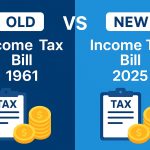Introduction
In India, credit cards have often been misunderstood. Some see them as a debt trap, while others believe they’re only for the wealthy. The truth? A credit card, when used wisely, is a powerful financial tool that offers unmatched convenience, rewards, and even security.
Think of it as a financial Swiss army knife — it helps you pay, borrow, protect, and save, all in one slim piece of plastic (or metal, if you like the premium feel).
In this blog, we’ll explore why you should own a credit card, its practical uses, and real-life examples to show you how it can improve your financial life.
1. Building Your Credit Score
Your credit score (CIBIL, Experian, etc.) plays a vital role in your financial journey. Whether you’re applying for a home loan, personal loan, or even renting a house in some cities, lenders often check your credit history.
How a Credit Card Helps:
- Making timely payments improves your credit score.
- Low credit utilization (using only 20-30% of your limit) shows financial discipline.
- Long-term card usage builds a solid credit history.
Example:
Ravi, a 27-year-old IT employee, started with a ₹25,000 limit credit card. By paying his bills on time for two years and keeping his usage below ₹7,000, his CIBIL score jumped from 680 to 770. This later helped him get a car loan at a lower interest rate.
2. Rewards, Cashback & Perks
One of the most obvious benefits of a credit card is earning rewards every time you spend. Depending on the card type, you can get:
- Cashback on groceries, fuel, and online shopping.
- Reward points for travel, dining, or entertainment.
- Airport lounge access, movie tickets, and other lifestyle benefits.
Example:
Neha spends ₹20,000 monthly on her credit card, earning 2% cashback. By year-end, she gets ₹4,800 back — enough to cover a weekend getaway!
Pro Tip: If you travel frequently, go for a travel rewards card; if you shop online often, pick an e-commerce partner card.
3. Interest-Free Credit
Credit cards offer an interest-free period (usually 45–50 days) between your purchase and payment due date. This allows you to manage cash flow better.
Example:
If you buy a laptop worth ₹50,000 on January 5th and your billing cycle ends on January 25th, you might have until February 15th to pay — without paying a single rupee as interest.
This is especially useful for freelancers and small business owners who have irregular income but need to make large purchases.
4. Safety & Fraud Protection
Unlike debit cards, where money is deducted instantly, credit cards give you an extra layer of protection. If there’s an unauthorized transaction, you can report it and avoid losing your actual bank balance.
Security Benefits:
- Zero-liability policy for fraudulent transactions.
- Instant blocking via app or customer service.
- OTP and two-factor authentication for extra security.
Example:
Suresh’s credit card was hacked for ₹15,000 while traveling abroad. He reported it immediately and didn’t have to pay anything. If it was his debit card, the money would have been gone from his account instantly.
5. Emergency Funding
Life is unpredictable — sudden medical bills, urgent travel, or last-minute expenses can pop up anytime. With a credit card, you have instant access to funds without dipping into your savings.
Example:
During the 2020 lockdown, Priya’s father needed an emergency hospital admission. Her credit card covered the ₹40,000 bill instantly, and she paid it back over the next month without disrupting her household budget.
6. Purchase Protection & Extended Warranty
Many premium credit cards offer:
- Purchase protection — refund or replacement if items are damaged or stolen.
- Extended warranty — additional coverage on electronics and appliances.
Example:
Amit bought a washing machine with his credit card. The manufacturer’s warranty was one year, but his card offered an extra year’s warranty. Sixteen months later, the machine had an issue, and he got it repaired for free.
7. Global Acceptance
Whether you’re traveling to Dubai, Singapore, or the US, a credit card eliminates the hassle of carrying large amounts of foreign currency. You also get competitive exchange rates compared to airport currency counters.
Example:
Ananya booked her Paris trip online, paid for her hotel in euros, and shopped in London — all using her credit card. She also earned air miles for future travel.
8. Smart Budgeting with Statements
Every month, your credit card statement shows:
- Detailed transaction history.
- Category-wise spending breakdown.
- Payment due date and total amount owed.
This helps you track expenses and identify overspending areas.
9. The Discipline Factor
A credit card can either build your financial discipline or break it — the choice is yours. The golden rules are:
- Always pay your bill in full.
- Avoid using more than 30% of your limit.
- Never withdraw cash unless it’s an emergency (cash withdrawals incur high charges).
Final Thoughts
A credit card is like fire — it can cook your food or burn your house down. Used responsibly, it offers unmatched convenience, rewards, security, and financial flexibility. Misused, it can lead to debt traps and stress.
If you’re just starting out, pick a no-annual-fee card with basic rewards. As your income grows, explore premium cards that match your lifestyle.
Remember: A credit card is not free money — it’s a tool. Use it to make your financial life smoother, not harder.


